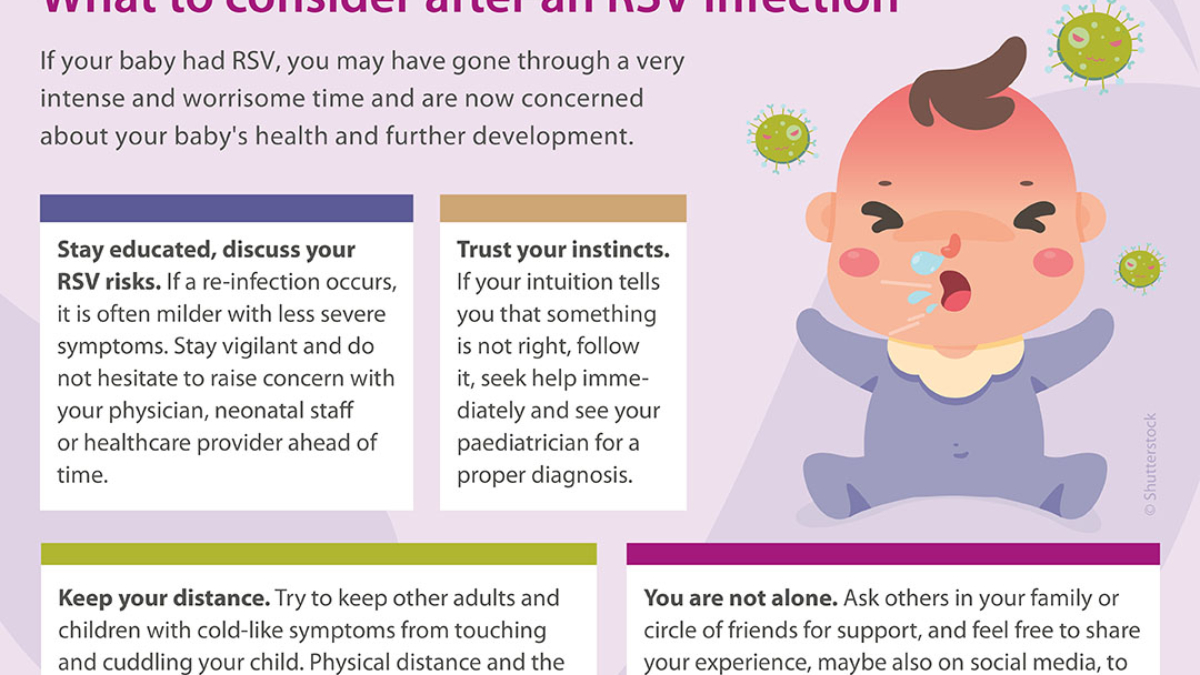In “Understanding RSV Symptoms in Children: A Comprehensive Guide,” you will gain a comprehensive understanding of the symptoms associated with Respiratory Syncytial Virus (RSV) in children. RSV is a common respiratory virus that can lead to serious complications in young children, especially infants. By exploring this guide, you will be equipped with the knowledge to recognize and identify common RSV symptoms, such as fever, ensuring timely medical intervention and appropriate care for your child’s health and well-being.
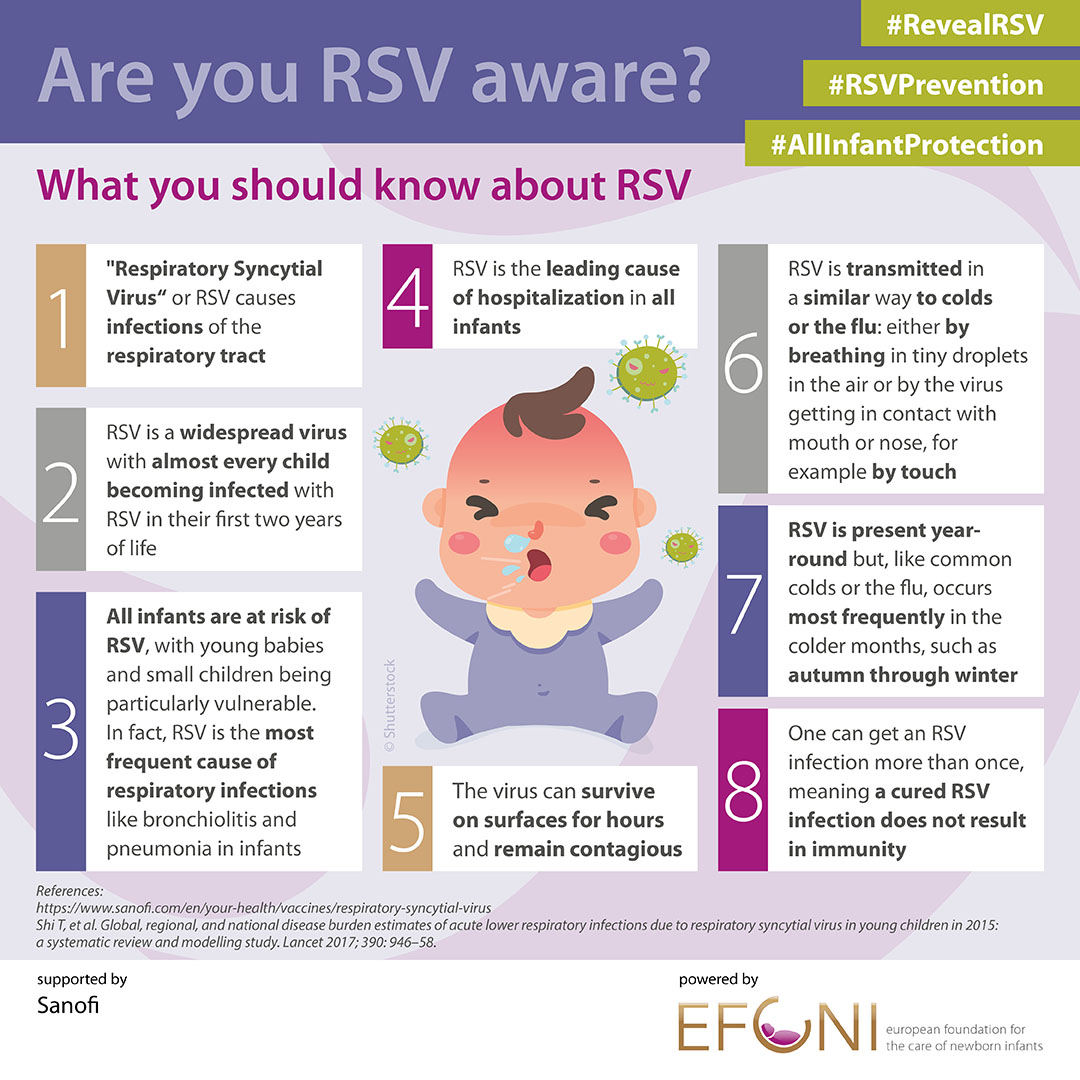
This image is property of www.efcni.org.
Understanding RSV in Children
Respiratory Syncytial Virus (RSV) is a common viral infection that primarily affects the respiratory system in children. It is a leading cause of respiratory illness, particularly in infants and young children. Understanding RSV is crucial for parents and caregivers in order to recognize and manage the symptoms effectively.
What is RSV?
RSV is a highly contagious virus that spreads through respiratory droplets when an infected person coughs or sneezes. It can also be spread by touching surfaces contaminated with the virus and then touching the mouth, nose, or eyes. RSV can cause a range of respiratory illnesses, from mild cold-like symptoms to severe lower respiratory tract infections such as bronchiolitis and pneumonia.
Prevalence of RSV in Children
RSV is a global health concern, affecting children in all parts of the world. In temperate climates, RSV infections usually occur in the fall, winter, and early spring. However, in tropical climates, RSV can circulate year-round. According to the World Health Organization (WHO), RSV is the most common cause of acute lower respiratory tract infections in children worldwide, resulting in significant morbidity and mortality.
The Risk factors for Children
Certain factors increase the risk of severe RSV infection in children. Premature babies, infants with chronic lung or heart conditions, and those with weakened immune systems are particularly vulnerable. Environmental factors such as exposure to cigarette smoke, crowded living conditions, and lack of breastfeeding can also increase the risk of RSV infection. It is important for parents and caregivers to be aware of these risk factors to take appropriate precautions.
RSV Symptoms in Children
Recognizing the symptoms of RSV is crucial for early intervention and appropriate treatment. The symptoms can range from mild to severe, and they may vary depending on the age of the child and the severity of the infection.
Classic Symptoms
Common symptoms of RSV infection in children include a runny nose, cough, sneezing, low-grade fever, sore throat, and mild headache. In infants, symptoms may manifest as difficulty breathing, rapid breathing, wheezing, and irritability. It is important to note that the severity of symptoms can vary greatly from child to child.
Duration of Symptoms
The duration of RSV symptoms can vary, but most children recover within one to two weeks. However, some children, especially those with underlying health conditions, may experience symptoms for a longer period.
Signs of Severe or Progressive Illness
In some cases, RSV infection can lead to severe respiratory illness. Signs of severe or progressive illness include persistent high fever, significant difficulty breathing, rapid breathing, chest retractions (visible inward pulling of the chest between or below the ribs during breathing), and bluish coloration of the lips or nails. If any of these signs are present, immediate medical attention should be sought.
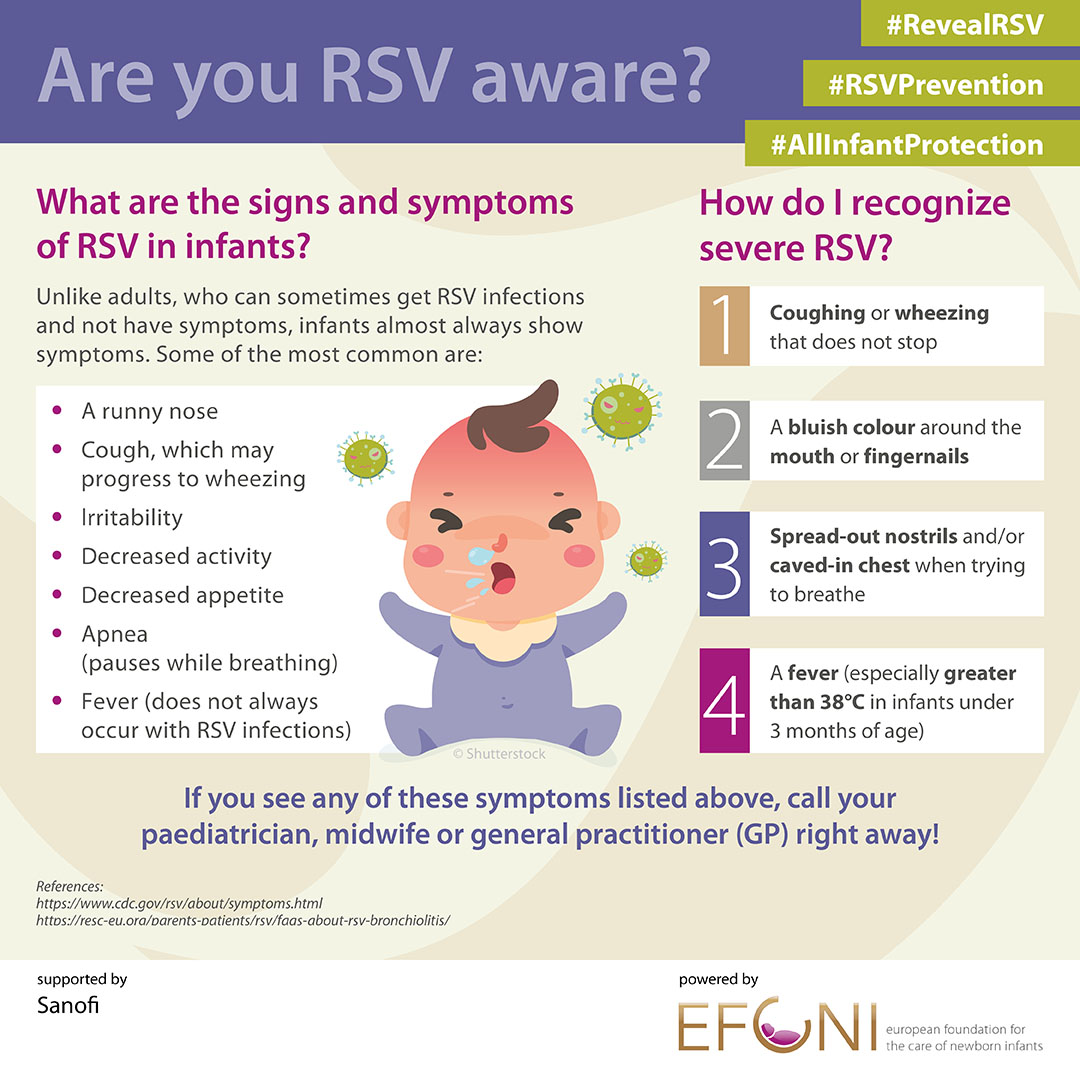
This image is property of www.efcni.org.
The Relation between RSV and Fever in Kids
Fever is a common symptom in many childhood illnesses, including RSV infection. Understanding the relationship between RSV and fever can help parents and caregivers navigate the course of the illness effectively.
Commonness of Fever in RSV
Fever is a frequent symptom in children with RSV infection, although not all children will experience it. The severity of fever can vary, ranging from a low-grade temperature to a high fever. It is important to remember that fever is the body’s natural response to infection and is generally not a cause for alarm unless it is extremely high or persists for an extended period.
Evaluating Fever as a Symptom
When a child has a fever, it is essential to evaluate other symptoms and signs of illness to determine the cause. RSV infection can be confirmed through diagnostic tests, such as nasal swabs or respiratory secretions. If RSV is diagnosed, it is important to monitor the child’s fever closely and seek medical advice if it becomes excessively high or if other concerning symptoms arise.
Methods of Managing Fever in RSV
To manage fever in children with RSV, it is advisable to follow the guidance of a healthcare professional. Over-the-counter fever-reducing medications such as acetaminophen or ibuprofen may be recommended. It is important to use these medications strictly according to the recommended dosage and to closely monitor the child’s response. Additionally, ensuring the child stays hydrated and maintaining a comfortable environment can help alleviate fever symptoms.
Diagnosing RSV in Children
Diagnosing RSV in children involves a combination of clinical evaluation, medical history assessment, and diagnostic procedures.
Common Diagnostic Procedures
To confirm RSV infection, healthcare providers may perform a nasal swab or aspirate respiratory secretions from the child. These samples are then tested for the presence of the virus using rapid diagnostic tests or laboratory techniques.
Laboratory Tests Involved
Laboratory tests for RSV can include enzyme immunoassays (EIA), polymerase chain reaction (PCR), or direct fluorescent antibody (DFA) tests. These tests help identify the presence of RSV and determine the subtype of the virus involved.
Importance of Early Detection
Early detection of RSV infection is crucial for appropriate management and to prevent the spread of the virus to other vulnerable individuals. Timely diagnosis allows healthcare providers to implement appropriate treatment plans and provide guidance on self-care at home. If you suspect your child has RSV or if they are exhibiting respiratory symptoms, it is important to consult with a healthcare professional as soon as possible.
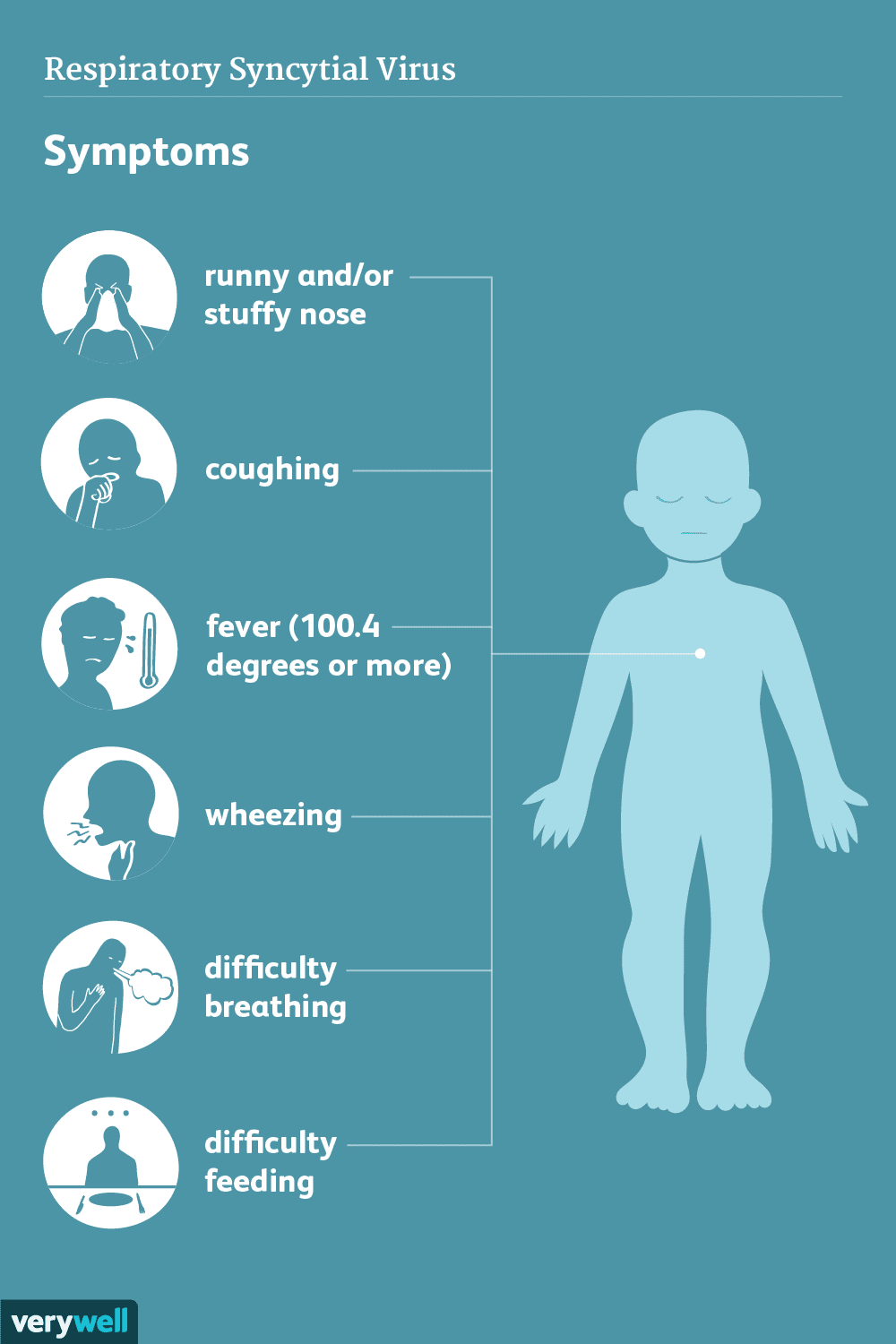
This image is property of www.verywellhealth.com.
Dealing with RSV Symptoms at Home
Caring for a child with RSV at home involves symptom relief and monitoring for any signs of worsening illness. While most cases of RSV can be managed at home, it is important to be aware of when medical attention is necessary.
Home Remedies for Symptom Relief
Home remedies can help alleviate the discomfort associated with RSV symptoms. These include keeping the child well-hydrated, using a cool mist humidifier to ease congestion, employing nasal saline drops or sprays to clear nasal passages, and ensuring adequate rest and sleep.
When to Seek Medical Attention
It is important to seek medical attention if your child’s symptoms worsen or if they exhibit signs of severe illness. These signs can include difficulty breathing, persistent high fever, extreme fatigue or lethargy, poor feeding or dehydration, or any other concerning symptoms. Prompt medical intervention can help prevent complications and ensure appropriate treatment.
Warning Signs to Look Out For
Certain warning signs indicate the need for urgent medical attention. These include rapid breathing, severe chest retractions, bluish coloration of the lips or nails, extreme irritability or confusion, or any other signs of respiratory distress. If any of these signs are present, it is crucial to seek immediate medical assistance.
RSV Treatments and Medications
Treatment for RSV focuses on relieving symptoms and supporting the child’s recovery. While there is no specific antiviral treatment for RSV, certain interventions can help manage the illness effectively.
Standard RSV Treatments
Standard treatment for RSV includes measures to alleviate symptoms and provide supportive care. These may include keeping the child well-hydrated, using saline nasal drops to reduce congestion, using a cool mist humidifier, and ensuring the child gets adequate rest.
Use of Medication in Treatment
In some cases, healthcare providers may prescribe medications to manage specific symptoms associated with RSV. For example, bronchodilators or corticosteroids may be used to relieve wheezing, especially in children with a history of asthma. However, the use of medications in RSV treatment should be determined by a healthcare professional based on the child’s individual needs.
RSV Immunoprophylaxis
In certain high-risk cases, healthcare providers may recommend RSV immunoprophylaxis to prevent severe infection. This involves administering a monthly injection of a monoclonal antibody to provide temporary protection against RSV. Immunoprophylaxis is typically reserved for infants and young children with specific medical conditions that put them at higher risk for severe RSV infection.
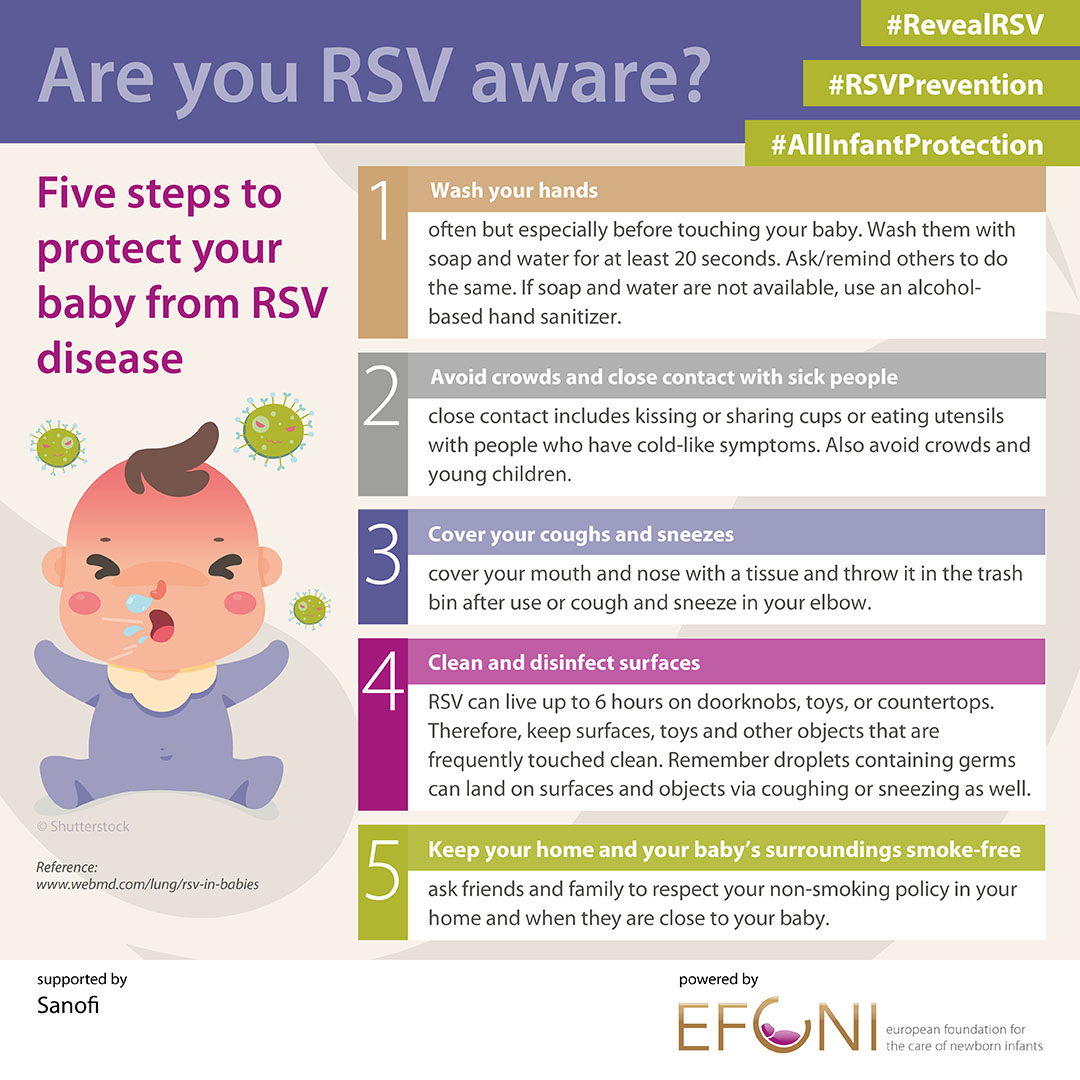
This image is property of www.efcni.org.
Prevention of RSV in Children
Preventing RSV infection is crucial, especially for high-risk children. Certain preventive measures can help reduce the risk of exposure and transmission of the virus.
RSV Vaccination
Although there is currently no licensed vaccine available for the prevention of RSV, research and development efforts are ongoing. Vaccines for RSV are being developed to provide targeted protection, especially in high-risk populations.
Hygiene Practices to Prevent RSV
Practicing good hygiene is crucial in preventing the spread of RSV. This includes frequent handwashing with soap and water, especially before touching the baby or handling their belongings. Avoiding close contact with individuals who are sick, regular disinfection of surfaces, and promoting a healthy lifestyle can also reduce the risk of RSV transmission.
Special Precautions for High-Risk Children
For high-risk children, such as those with chronic lung or heart conditions, additional precautions may be necessary. These can include restricting exposure to crowded places, avoiding close contact with individuals who have cold or flu symptoms, and ensuring ongoing medical care and regular check-ups.
Long-Term Effects of RSV in Children
While most children recover from RSV without long-term complications, there can be potential impacts on their health and development.
Potential Breathing Difficulties
Severe RSV infection can lead to respiratory complications and increased susceptibility to future respiratory illnesses. Some children may experience recurrent wheezing or asthma-like symptoms following RSV infection. Close monitoring and appropriate management can help prevent long-term breathing difficulties.
Potential Developmental Issues
In some cases, RSV infection can affect a child’s development, particularly in infants who experience severe illness. Studies have shown a potential association between RSV and developmental delays, especially in cognitive and language skills. Early intervention programs and developmental assessments can help address and manage any potential developmental issues.
Studies on Long-Term Effects
Ongoing research is being conducted to better understand the long-term effects of RSV infection on children’s health and development. These studies aim to identify potential risk factors, develop targeted interventions, and improve outcomes for children affected by RSV.
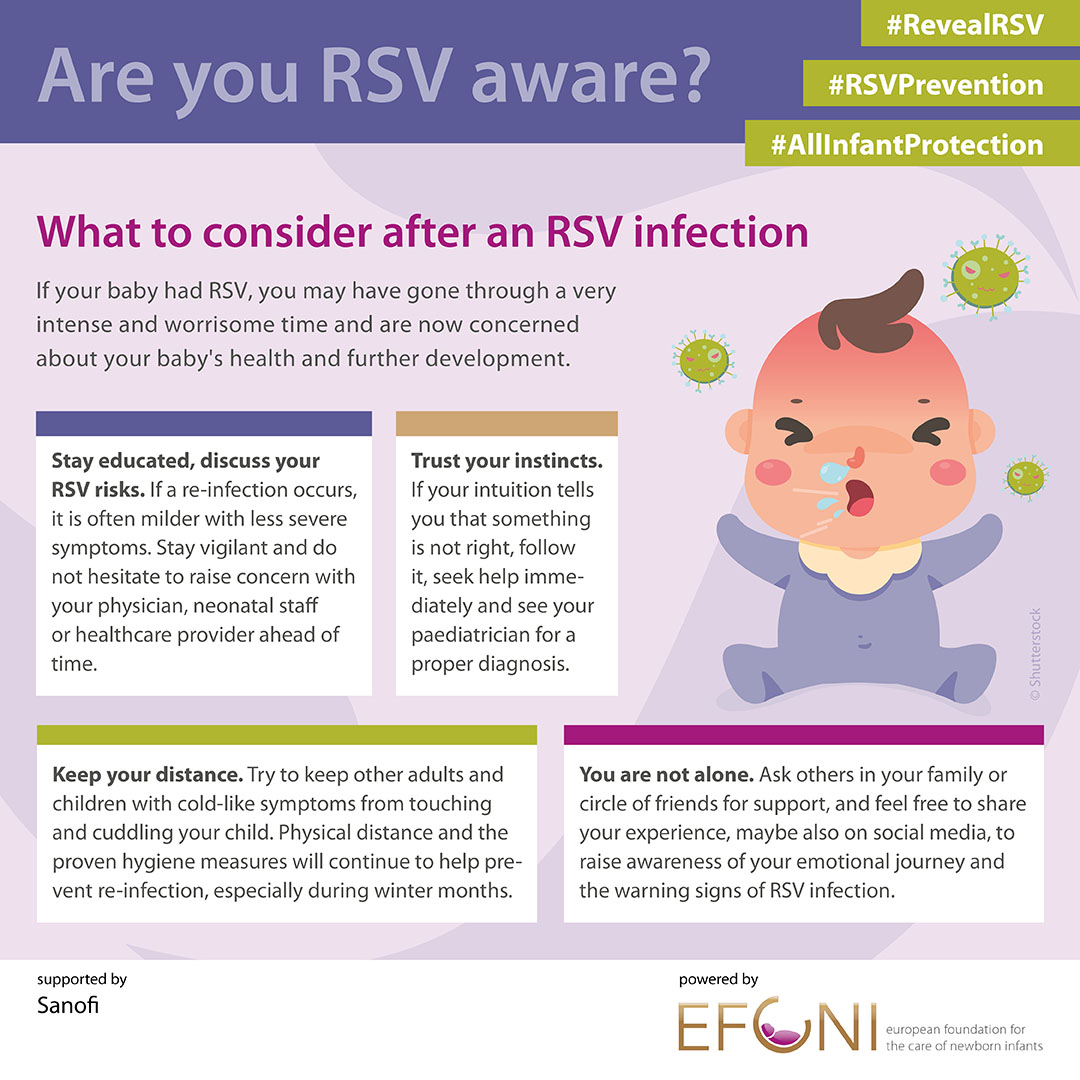
This image is property of www.efcni.org.
The Emotional Impact of RSV on the Family
RSV can have a significant emotional impact on the entire family, particularly on parents and siblings. Understanding and addressing the emotional well-being of family members is important in providing comprehensive care.
Emotional Stress on Parents and Siblings
Parents often experience high levels of stress, worry, and anxiety when their child is diagnosed with RSV. They may feel overwhelmed by the responsibility of caring for a sick child and may experience feelings of guilt or frustration. Siblings may also be affected, as their routines and attention may be disrupted.
Coping Mechanisms for Family Members
Building strong coping mechanisms is crucial for family members impacted by RSV. Seeking emotional support from friends, family, or support groups can provide a valuable outlet for expressing concerns and finding comfort. Practicing self-care strategies, such as engaging in activities that promote relaxation and stress relief, can also help alleviate emotional distress.
Support Systems and Resources
There are various resources available to support families dealing with RSV. Professional organizations, such as the American Academy of Pediatrics and the National Institute of Allergy and Infectious Diseases, provide valuable information and guidance. Recommended reading materials and online resources can also help parents and caregivers educate themselves about RSV and find support. Additionally, support groups and counseling options can provide emotional support and a sense of community for families coping with RSV.
In conclusion, understanding RSV in children is essential for parents and caregivers. Recognizing the symptoms, knowing when to seek medical attention, and implementing preventive measures can help minimize the impact of RSV on children’s health and well-being. It is crucial to stay informed, seek healthcare advice when needed, and provide emotional support for the entire family during this challenging time.

